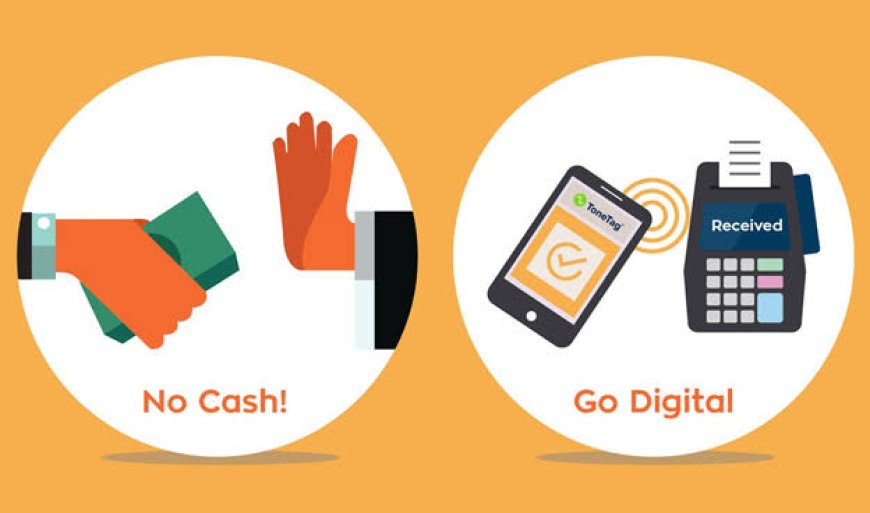The War on Cash: Is the Government Forcing India Into a Digital Trap?
The Indian government is aggressively pushing for a cashless economy, but is it truly about convenience, or is it about control? Explore the risks of digital payments, privacy concerns, and the hidden costs of going cashless

Introduction
In recent years, the Indian government has been on a mission to reduce cash transactions and promote digital payments. From demonetization in 2016 to the growing dominance of UPI, every policy seems to push India towards a cashless future. But is this shift truly about modernizing the economy, or is there a deeper agenda? As digital payments become the norm, concerns over privacy, government control, and financial exclusion are rising. Could India be heading towards a digital economy where the government monitors every rupee you spend?
The Push for a Cashless India
The transition to digital payments has been aggressively encouraged through policies and incentives:
-
Demonetization (2016) – The removal of ₹500 and ₹1,000 notes forced millions to adopt digital transactions overnight.
-
UPI Boom – With apps like PhonePe, Google Pay, and Paytm, India has become the global leader in real-time digital payments.
-
Penalizing Cash Transactions – Large cash deposits now require PAN cards, and businesses are penalized for cash transactions above a certain limit.
-
Digital Rupee (CBDC) – The RBI has introduced a Central Bank Digital Currency (CBDC), which could further reduce the need for cash.
On the surface, this looks like progress. Digital payments are fast, convenient, and reduce corruption. But at what cost?
The Dark Side of a Cashless Economy
1. Government Surveillance and Control
With every digital transaction leaving a trail, financial privacy is disappearing. Governments and financial institutions can track, monitor, and even freeze your transactions if they find them "suspicious." What happens if authorities misuse this power?
Example: In Canada, during the 2022 truckers' protest, the government froze the bank accounts of protesters and their supporters. Could a similar thing happen in India?
2. The Risk of Financial Exclusion
Millions of Indians, especially in rural areas, still lack smartphones, internet access, or digital literacy. For them, cash is the only way to transact. A cashless system could leave them economically stranded.
Example: During demonetization, small vendors and daily wage workers struggled for months as cash availability dried up.
3. Dependence on Private Payment Companies
UPI might be "free" for now, but what happens when payment processors start charging transaction fees? Already, credit card networks take a cut from businesses. A digital-only system could give big tech and banks too much power over transactions.
4. Cybersecurity Risks and Fraud
A cashless society is more vulnerable to cyberattacks, hacking, and digital fraud. Digital wallets and banking systems are not foolproof, and millions of Indians have lost money to online scams.
Example: UPI frauds have skyrocketed in India, with fraudsters tricking users into sending money or revealing OTPs.
5. Negative Interest Rates and Currency Devaluation
In a cashless society, central banks can impose negative interest rates, essentially charging people for holding money. The government could also print digital currency at will, causing inflation and loss of purchasing power without citizens having a way to escape the system.
Who Really Benefits from a Cashless Society?
-
Government – Gains complete control over the economy, taxation, and financial data of every citizen.
-
Banks and Payment Companies – Profit from transaction fees and data collection.
-
Tech Giants – Google, Facebook, and Paytm benefit from the explosion of digital payments and advertising opportunities.
Is There a Middle Ground?
A completely cashless economy is dangerous, but a balance can be achieved by:
-
Keeping cash as an option for transactions.
-
Ensuring financial privacy laws that prevent the government from overstepping into personal finances.
-
Strengthening digital security to prevent fraud and cybercrimes.
-
Encouraging offline digital solutions like CBDCs that don’t require the internet to function.
Conclusion
India’s move towards a digital economy is inevitable, but eliminating cash entirely could have serious consequences. Convenience should not come at the cost of privacy, freedom, and financial security. The war on cash is not just about technology—it’s about control. As citizens, we must ask: Do we want a future where every rupee we spend is tracked and controlled?
What's Your Reaction?

















































